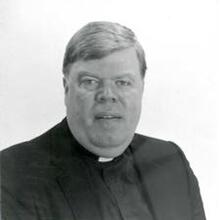At the conceptual heart of the encyclical “Laudato Si’” lies the term integral ecology. Widely used in contemporary environmentalist circles, the term’s meaning is often hazy. Conceptual clarification could indicate the distinctive version of integral ecology the pope is defending.
Some scientists conceive integral ecology as a multidisciplinary study of environmental entities. A salt lake, for example, could be studied simultaneously from geological, biological and economic perspectives. Some economists use the phrase to insist that environmental issues cannot be divorced from questions of production and consumption. Some philosophers defend integral ecology as a new form of naturalism: that human activity is wholly inscribed within material nature.
The term also has a distinctive Catholic echo. In “Populorum Progressio” (1967), Pope Paul VI championed integral development. This kind of development would promote the economic progress of humanity, but it would do so within a broader framework of the moral and religious maturation of the human person. In the 1940s Jacques Maritain expounded the theory of integral humanism. This type of Christian politics would join the secular humanist in promoting civic democracy, but it would insist on the religious source and ultimate destiny of the human person.
With the exception of the naturalist, these various conceptions of integral ecology clearly influence Francis’ version. “Laudato Si’” is particularly close to those approaches to ecology that insist that environmental and economic problems are inseparable. “We are faced not with two separate crises, one environmental and the other social, but rather with one complex crisis which is both social and environmental” (No. 139). The cause of environmental degradation and economic oppression is the same: a willfulness fueled by moral relativism.
Despite the similarities, the brand of integral ecology promoted by Francis sharply diverges from that promoted by many prominent environmentalists. “Laudato Si’” repeatedly condemns those who tout population control as a tool to address the environmental crisis. “To blame population growth instead of extreme and selective consumerism on the part of some is one way of refusing to face the issue” (No. 50). It censures the economic imperialism of the affluent who pressure the poor to accept sterilization and contraception.
In its treatment of animals, “Laudato Si’” emphasizes that they are more than means to be used toward human ends. But it underscores the decisive difference between the human and the animal. “Our capacity to reason, to develop arguments, to be inventive, to interpret reality and to create art…are signs of a uniqueness which transcends the sphere of physics and biology” (No. 81). Animal rights activists will find little consolation here. Human life, with its attendant rights, lies on another plane.
Faithful to his predecessors, Francis extends the concept of ecology to human relations outside the economic sphere. Sexuality receives close attention. Reverence for the human body demands respect for gendered difference. “Valuing one’s own body in its femininity or its masculinity is necessary if I am going to be able to recognize myself in an encounter with someone who is different” (No. 155). This defense of sexual alterity echoes Francis’ longstanding critique of attempted same-sex marriage and of technological efforts to alter gender. Like the cosmos, the human body possesses an internal logic demanding reverence rather than inviting manipulation or attempted abolition.
Like other heralds of integral humanism, Francis insists upon the recognition of God as creator in order to grasp the proper status of the material cosmos. Whereas some environmentalists treat the cosmos itself as divine, “Laudato Si’” sharply differentiates God as creator from the cosmos, a creature. “Judaeo-Christian thought demythologized nature. While continuing to admire its grandeur...it no longer saw nature as divine” (No. 78). Idolatry and pantheism are illusory.
The brand of integral ecology promoted by Francis confirms the church as an ally of environmentalists in combating the earth’s exploitation. But in its exaltation of the Creator God and its defense of the transcendent human person, Francis confirms the church as a sharp internal critic of several articles of faith in the dominant environmentalist creed.








